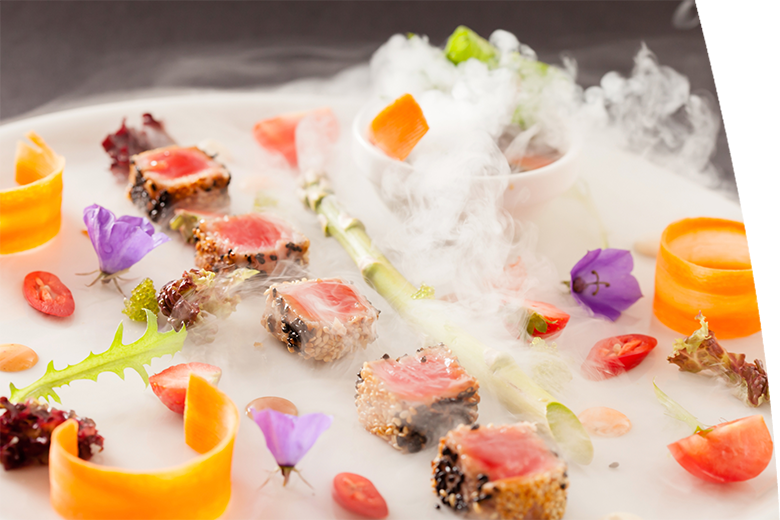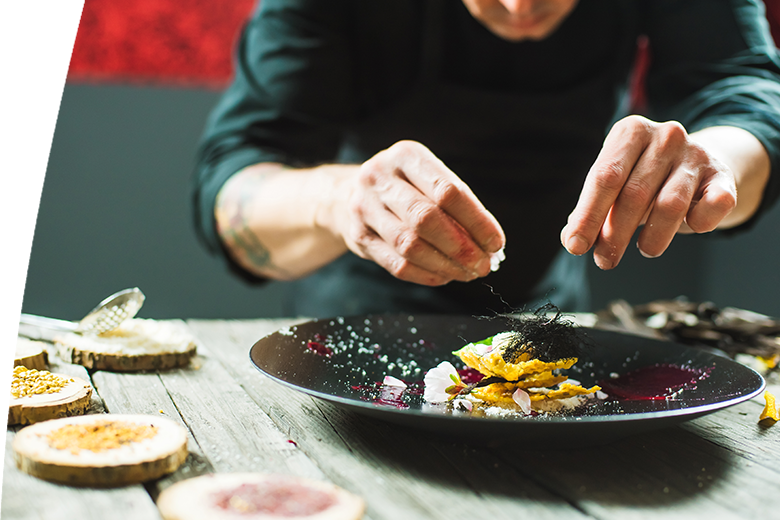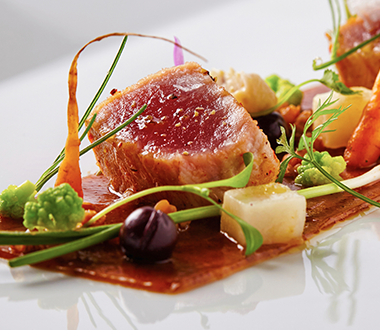How Molecular Cuisine is Transforming the Restaurant World
New Methods, New Ingredients, New Experiences
Molecular gastronomy uses a wide range of techniques and tools that are outside the traditional culinary approach. These include, for example, liquid nitrogen for rapid freezing, sous-vide cooking for perfect temperature control, as well as the use of various gels, gums and emulsifiers to create food with unusual textures.
You know what helps stabilize foams and emulsions, creating airy, light textures that enhance dishes and provide a unique mouthfeel? Sodium alginate. It's a versatile additive that's used for thickening, gelling and stabilizing. Its ability to form gels in the presence of calcium ions makes it an essential ingredient in molecular gastronomy techniques. It is extracted from brown seaweed and is also used to form thin, transparent films that can act as barriers or carriers for flavours, colours or other ingredients, allowing for innovative food presentation.

By freezing with liquid nitrogen, you can also turn meat stock into a mass that looks strikingly like pasta. Another typical example are the various mousses (cucumber, chicken, raspberry....) already mentioned, called espuma. It is also not uncommon for your food to glow or smoke, which can later cause it to smoke out of customers' mouths or noses.
In this kind of gastronomy, you don't combine ingredients that taste good together based on common practices, but on their molecular composition. In general, the theory of related tastes states that if two foods have the same or similar molecular composition, there is a high probability that they will taste good together. So, for example, you might get a delicious combination of cauliflower and cocoa, parmesan and honey, banana and parsley, pineapple and hops, or chocolate and meat.
On the world stage, molecular gastronomy has long been widespread. Some of the best-known restaurants to embrace it include elBulli in Spain, Alinea in Chicago, and Fat Duck in England. These places are known for creating unique dishes that are not only visually fascinating, but also exceptionally delicious.

Also in Slovakia, molecular gastronomy is gradually becoming more popular and gaining its fans. In Bratislava, you can find more than one restaurant that offers cuisine with a focus on molecular gastronomy techniques. Specialities include, for example, marinated salmon with vegetable balls prepared by spherification (note: a culinary technique used to encapsulate liquid food or cream in a thin membrane with a gelatinous texture) and ginger gel. Restaurant APANI in Šamorín focuses on the fusion of traditional Slovak cuisine with modern molecular elements. Here you will find dishes such as roasted lamb shoulder with pumpkin powder and pea puree.
Why Invest in Molecular Gastronomy?
Molecular gastronomy can be an excellent way for restaurants and hotel operations to differentiate themselves from the competition. It offers unique dishes that are both visually appealing and delicious in taste. These qualities can be enticing to new customers looking for unusual and exciting dining experiences. In addition, molecular gastronomy can also surprise existing customers, offering them something new and stimulating their curiosity.
Last but not least, molecular gastronomy is also about education. Visitors can find it fascinating to learn about the science and chemistry behind the preparation of the food they eat. If you have a taste for creating something new, this cuisine might just be your path to success.
Don't forget to subscribe to our newsletter to get more tips and advice from different areas of the business world.



